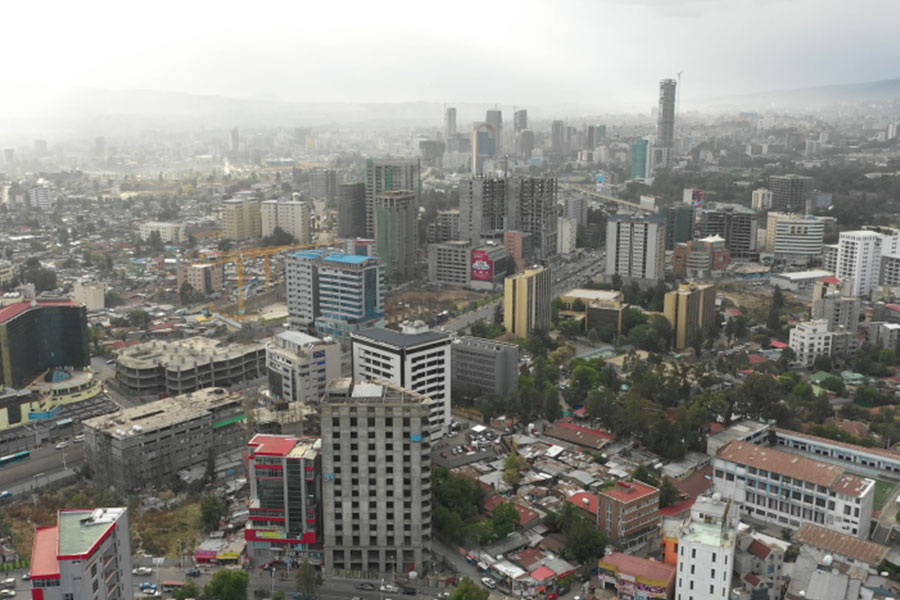
Jan 26 , 2019
By Belay Abera
Social problems continue to be one of the chief challenges in the world, including Ethiopia, only changing its face and texture from time to time. High rates of substance abuse, with just about half of Ethiopian adults suffering, the tensions with the family fabric and increasing rates of delinquency are some of the common social problems that are widely seen.
Such problems have not gained enough attention despite their graveness, perhaps because it is not an economic or political problem that can be fixed by the implementation of new policies. It is as well not a walk in the park to take stock of the cause of the full scale of the problem and present alternatives to address them without affecting economic and political situations.
Unfortunately, it is also not easy for us to agree on what can constitute a social problem. For the most part, it is merely a condition that people in a community view as being undesirable. Some are easier to gauge out, such as the Opioid epidemic in the United States.
Other social problems may not be viewed as such by certain groups of people. Teenagers who play loud music in a public park do not see it as a problem, but other people may consider it an undesirable social behaviour. Similarly, non-smokers may view smoking as an undesirable social condition that should be banned or restricted in public buildings. Typically, social issues result from factors beyond an individual's control and can disproportionately affect people who share characteristics such as race, religion, economic status or geographic location.
It is the media that usually sets the tone on how we look at social issues. It can be racism, unemployment, crime, violence, drug abuse and environmental problems, most of them found at the local, regional, national and international levels. Some of these problems often get more attention than others, mostly depending on the cultural and religious norms and popular opinion within society just as much as the seriousness of the issue.
For an issue to be considered a social problem, a segment of the population should agree that the condition is counterproductive. For instance, some people favour a ban on smoking in public, but others oppose a total ban on smoking. The same goes for the right to bear arms, which some consider to be a nuisance that opens the floodgates to lawlessness while others violently disagree.
Given that whether or not social issues will be addressed largely rests on the opinions of the public, it is minorities or groups left out of political participation that pay the higher price. This gives way to political movements that have substantially affected the political and economic organisation of a nation. It is crucial to note that many political and economic issues have a social basis. For instance, a cigarette smoker becomes a victim of lung cancer, which in itself translates a public health issue.
Of the great many social problems that we face, that of the youth should be most worrying as it would come to inform their worldviews in the future. Since social issues have more to do with the attitude society has towards them than their pervasiveness, it is crucial that young people come of age satisfactorily informed of what the logical steps that should be taken are.
The young generation is growing up in an environment with easy access to information that can be easily misconstrued or misleads people. Substances that can be abused are only growing, and there is an abundance of opportunities to be lost in a virtual world that offers no means to get acquainted with opposing ideas.
If these problems are not addressed, society will become unsafe for the individual, not to mention minorities, and negatively influence the lives of future generations. It would require a societal reform to address these problems, which must start from an assertion of culpability. It also needs responsible institutions that are dedicated to protecting the few from some of the negative inclinations of the majority.
PUBLISHED ON
Jan 26,2019 [ VOL
19 , NO
978]


Life Matters | Apr 17,2021

Fortune News | Nov 13,2021

Life Matters | Nov 12,2022

Life Matters | Feb 11,2023

Radar | Dec 01,2024

My Opinion | Jan 03,2021


View From Arada | Sep 11,2020

My Opinion | Aug 22,2020

My Opinion | Aug 16,2020

My Opinion | 131673 Views | Aug 14,2021

My Opinion | 128039 Views | Aug 21,2021

My Opinion | 126001 Views | Sep 10,2021

My Opinion | 123622 Views | Aug 07,2021

Dec 22 , 2024 . By TIZITA SHEWAFERAW
Charged with transforming colossal state-owned enterprises into modern and competitiv...

Aug 18 , 2024 . By AKSAH ITALO
Although predictable Yonas Zerihun's job in the ride-hailing service is not immune to...

Jul 28 , 2024 . By TIZITA SHEWAFERAW
Unhabitual, perhaps too many, Samuel Gebreyohannes, 38, used to occasionally enjoy a couple of beers at breakfast. However, he recently swit...

Jul 13 , 2024 . By AKSAH ITALO
Investors who rely on tractors, trucks, and field vehicles for commuting, transporting commodities, and f...

Jun 28 , 2025
Meseret Damtie, the assertive auditor general, has never been shy about naming names...

Jun 21 , 2025
A well-worn adage says, “Budget is not destiny, but it is direction.” Examining t...

Jun 14 , 2025
Yet again, the Horn of Africa is bracing for trouble. A region already frayed by wars...

Jun 7 , 2025
Few promises shine brighter in Addis Abeba than the pledge of a roof for every family...

Jun 29 , 2025
Addis Abeba's first rains have coincided with a sweeping rise in private school tuition, prompting the city's education...

Jun 29 , 2025 . By BEZAWIT HULUAGER
Central Bank Governor Mamo Mihretu claimed a bold reconfiguration of monetary policy...

Jun 29 , 2025 . By BEZAWIT HULUAGER
The federal government is betting on a sweeping overhaul of the driver licensing regi...

Jun 29 , 2025 . By NAHOM AYELE
Gadaa Bank has listed 1.2 million shares on the Ethiopian Securities Exchange (ESX),...